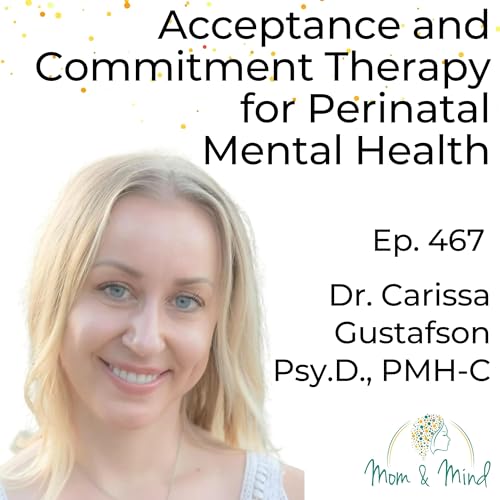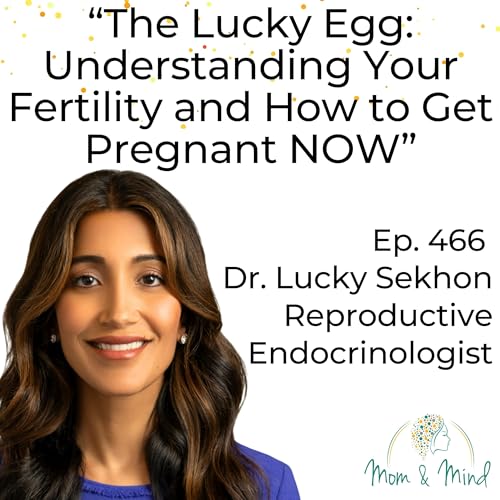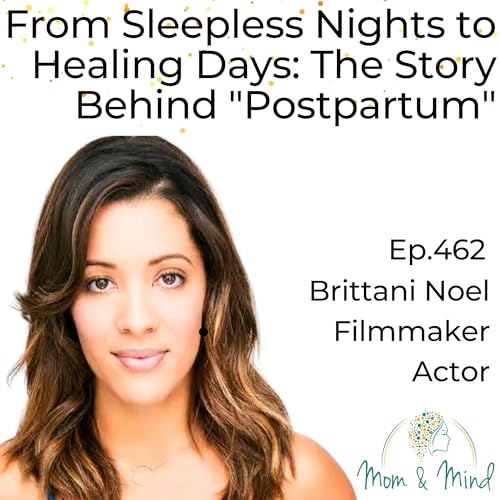There is much to consider about the intersection of perimenopause, ADHD, and postpartum. With more and more people choosing to have babies later in life, there is the likelihood that the start of perimenopause may coincide with the perinatal period. Those with ADHD have another variable thrown into the mix. We are tackling these topics with our expert guest today. Please join us! Kara Cruz is a Licensed Marriage and Family Therapist, Perinatal Mental Health Specialist, private practice owner, clinical supervisor, women’s mental health advocate, and educator. Her areas of focus are reproductive mental health, ADHD, complex trauma, and mood and anxiety conditions. In addition to psychotherapy with individuals and couples, Kara also facilitates continuing education and mental health training for professionals. One of her favorite projects is her Therapist Group Bootcamp, where she teaches and coaches fellow therapists on building their own wellness and support groups. Kara is an EMDRIA-certified therapist who leads workshops, including her signature group for women, “It Begins With Us.” She is the co-owner/co-founder of Women’s Support Circle, a space for community, resource sharing, and support for women worldwide. She created the Wellness for Women Healers Community, a space for healers of all professions and backgrounds who share the common goal of promoting women’s healing and wellness. Away from work, Kara is a busy wife and mom, enjoying baseball, music, and all nature activities near the beautiful California coast. Show Highlights: Women are suffering in silence, feeling shame and guilt about how they feel. Understanding the basics of perimenopause Perimenopause experiences cannot be compared from woman to woman; everyone is different. The impacts of ADHD on perimenopause Many professionals are not well-trained on menopause and perimenopause. Kara’s personal experience with ADHD Differences in males and females with ADHD (more external in boys/more internal in girls) Kara’s observations with patients who finally admit they are overloaded and are experiencing multiple symptoms of ADHD Similarities in symptoms for those who struggle with perimenopause and postpartum: anxiety, panic attacks, anger/irritability, depression, brain fog, sleep disturbances, sadness/crying, joint pain, etc. The importance of sleep for everyone Kara’s process to help people track their sleep and identify their sleep issues The value of a collaborative effort among a healthcare/treatment team Kara’s trainings offered to therapy professionals (An overview of three core trainings in 2026) How a therapist can help with perimenopause and ADHD Resources: Connect with Kara Cruz: Website, LinkedIn, and Instagram Call the National Maternal Mental Health Hotline at 1-833-TLC-MAMA or visitcdph.ca.gov. Please find resources in English and Spanish at Postpartum Support International, or by phone/text at 1-800-944-4773. There are many free resources, like online support groups, peer mentors, a specialist provider directory, and perinatal mental health training for therapists, physicians, nurses, doulas, and anyone who wants to be more supportive in offering services. You can also follow PSI on social media: Instagram, Facebook, and most other platforms. Visit www.postpartum.net/professionals/certificate-trainings/for information on the grief course. Visit my website, www.wellmindperinatal.com, for more information, resources, and courses you can take today! If you are a California resident seeking a therapist in perinatal mental health, please email me about openings for private pay clients. Learn more about your ad choices. Visit podcastchoices.com/adchoices
Show More
Show Less
 46 mins
46 mins 39 mins
39 mins 45 mins
45 mins Dec 29 202555 mins
Dec 29 202555 mins Dec 25 202535 mins
Dec 25 202535 mins 39 mins
39 mins 39 mins
39 mins Dec 11 202529 mins
Dec 11 202529 mins
